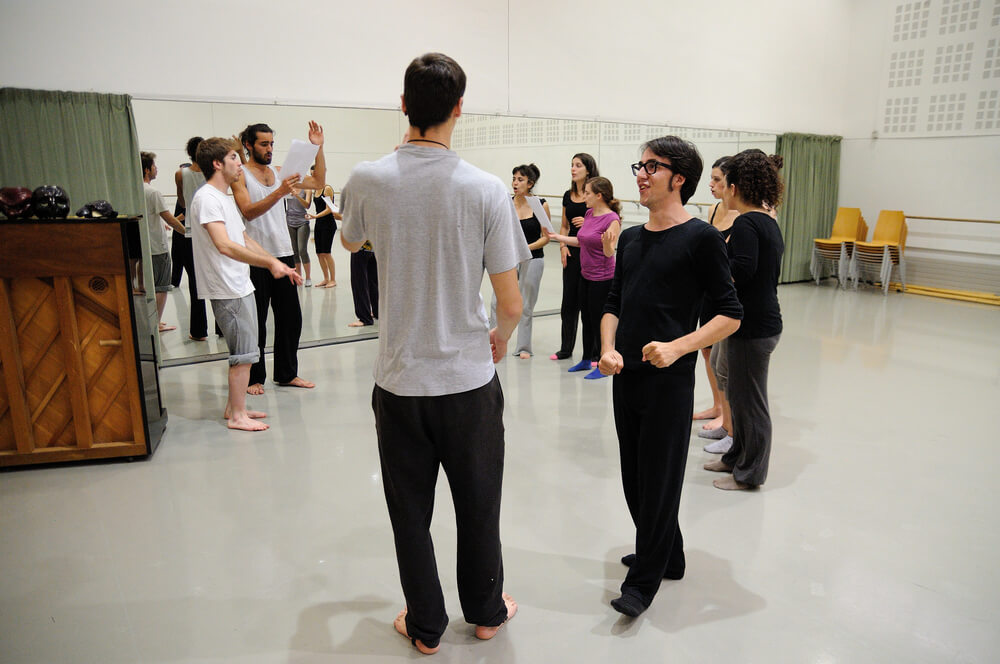
Stepping onto the stage or in front of a camera, aspiring actors carry their talents, demeanor, attitude and professionalism. In the world of acting, where opportunities are often hard-fought and highly competitive, the significance of audition etiquette cannot be overstated.
Each audition is a unique chance to demonstrate your commitment to your craft and your respect for the industry professionals who are central to fulfilling your aspirations. Beyond simply showcasing your acting abilities, adhering to proper audition etiquette is essential to forging a lasting and successful career in the performing arts.
This article offers invaluable tips that will help you navigate auditions with confidence, and underline the critical role that creating a strong, positive impression holds in capturing the attention of discerning casting directors.
Understanding Audition Etiquette
At its core, audition etiquette encompasses a set of practices that guide the behavior and conduct of actors during the audition process. It’s a combination of respectful gestures, professional demeanor and thoughtful communication that extends beyond the mere recitation of lines. While the acting itself remains the focal point, adhering to proper audition etiquette can significantly influence the outcome of your audition.
Casting directors are assessing your acting chops, as well as evaluating your suitability as a collaborator. Practicing audition etiquette reflects your ability to seamlessly integrate into the entertainment industry. A well-rounded actor masters their craft while embracing the essence of teamwork, punctuality and adaptability. By embodying these qualities during auditions, you send a clear signal that you are not just there to showcase your skills but to contribute positively to the overall production—an attractive trait that can set you apart in a fiercely competitive landscape.
Top Audition Etiquette Tips
Whether you’re a seasoned actor or just stepping onto the audition scene, these tips will guide you toward presenting yourself as a professional and a true asset to any production.
Pre-Audition Preparation
- Research the Role: Before even setting foot in the audition room, take the time to thoroughly understand the character you’re auditioning for. Research the project, its genre, tone and director’s vision. This knowledge will help you tailor your performance and showcase your dedication and commitment to the role.
- Perfect the Audition Piece: Choose and prepare your audition piece well in advance. Be it a monologue, scene or song, ensure that you are not only comfortable with the material but have also practiced it thoroughly. Strive to bring your unique interpretation while staying true to the essence of the character. This will demonstrate your diligence and help you exude confidence during the audition.
Conduct During the Audition
- Presentation and Body Language: Your first impression begins the moment you walk through the door. Dress appropriately for the role, showing a clear understanding of the character’s style. Maintain positive body language—stand tall, make eye contact and greet the casting panel with a warm smile. These non-verbal cues convey your confidence and eagerness to engage.
- Demonstrate Professionalism: Engage in polite and respectful conversation with the casting panel. Listen carefully to any instructions or feedback they provide. If adjustments are suggested, take them in stride and show your adaptability. Remember, the panel is not just evaluating your acting skills, but also assessing your demeanor and how well you might fit into the project’s dynamic.
Post-Audition Actions
- Send a Thank-You Note: After your audition, it’s a thoughtful gesture to send a brief thank-you note to the casting directors. Express gratitude for the opportunity and reiterate your enthusiasm for the project. This small courtesy can leave a lasting impression and further demonstrate your professionalism.
- Reflect on Your Performance: Regardless of the outcome, take time to constructively reflect on your audition. Identify your strengths and areas for improvement. This self-assessment will not only aid in personal growth but also prepare you for future auditions. Remember, each audition is a chance to learn and refine your craft.
By embracing these etiquette tips throughout your audition journey, you’ll showcase your acting prowess and embody the qualities that casting directors seek in reliable and dedicated performers.
Common Audition Mistakes
Understanding audition etiquette is crucial, but it’s equally important to be aware of common mistakes that can inadvertently sabotage your audition. Here’s a list of key “don’ts” to steer clear of during auditions:
- Being Unprepared: Arriving at an audition without a solid grasp of your lines or a well-rehearsed audition piece can undermine your performance and send the wrong message. Casting directors can easily detect a lack of preparation, which reflects negatively on your commitment and professionalism.
- Overconfidence or Nervousness: Striking the right balance between confidence and nervousness is vital. Being excessively self-assured might come off as arrogance, while extreme nervousness can hinder your delivery. Find the middle ground that showcases your confidence in your abilities, while remaining open to direction.
- Disregarding Directions: Failing to follow instructions from the casting panel is a grave mistake. Whether it’s ignoring a specific direction for your performance or disregarding guidelines for the audition process, this behavior portrays a lack of respect for the collaborative nature of the industry.
- Poor Time Management: Arriving late for auditions or going significantly over the allocated time can create a negative impression. Casting directors operate on tight schedules, and your inability to manage time efficiently might signal unreliability and a lack of consideration for others.
- Inappropriate Attire: Wearing attire that’s mismatched with the role or too casual can distract from your performance. Your outfit should complement the character and showcase your understanding of the project’s aesthetic. Inappropriate attire can demonstrate a lack of attention to detail.
- Negative Attitude: Approaching auditions with a negative or entitled attitude can instantly put off casting directors. Even if you’re frustrated or anxious, maintaining a positive and respectful demeanor is crucial. Negativity reflects poorly on your ability to collaborate effectively on-set.
- Overdoing It:While delivering a powerful performance is essential, overacting or excessively dramatic expressions can detract from the authenticity of your portrayal. Subtlety and nuance sometimes have a stronger impact than exaggerated gestures or emotions.
- Criticizing Previous Work: Avoid criticizing past projects or colleagues during auditions. Such comments reflect poorly on your character and might lead to concerns about your ability to work harmoniously with others.
Committing these common audition mistakes can significantly diminish your chances of landing a role. Remember, auditions are not just about showcasing your talent; they’re about demonstrating your readiness to contribute positively to the production.
Signs a Casting Director Likes You
Within the audition process, subtle indicators can reveal when a casting director is responding positively to your performance. Understanding these cues empowers you to fine-tune your approach and strengthen the positive impression you’re making.
Recognizing Positive Indicators
- Engaged Body Language: Leaning in, sustained eye contact and nods can signify the casting panel’s genuine interest in your portrayal, reflecting an engaged response.
- Adjustment Requests: If the casting team offers directions or asks for different takes, it signals their recognition of your potential and a desire to collaborate on refining your interpretation.
- Follow-Up Queries: Inquiries about your background, experience or character approach indicate that casting directors are considering your overall fit for the role.
Reinforcing a Positive Impression
- Flexibility and Openness: Embrace feedback and adapt gracefully, demonstrating your versatility and cooperative nature.
- Express Gratitude: After your audition, convey your appreciation for the opportunity, reinforcing your positive demeanor and leaving a memorable mark.
- Engage Respectfully: If you sense receptivity, engage thoughtfully with the panel, showcasing your enthusiasm and professionalism.
- Tactful Follow-Up: Consider a brief follow-up expressing continued interest, while maintaining respectful boundaries to avoid appearing overly persistent.
By decoding casting directors’ cues and responding strategically, you heighten your chances of leaving an enduring and positive impression, crucial for securing roles that extend beyond skill to encompass collaborative value.
Navigating Auditions With Finesse
To recap, here are the key takeaways to remember:
- Thoroughly research the role and project to showcase your dedication.
- Arrive prepared and exude confidence in your audition piece.
- Maintain professional body language to make a positive first impression.
- Engage with the casting panel respectfully and adapt to their feedback.
- Strengthen your impression post-audition with a thank-you note and self-reflection.
- Discern positive signs from casting directors, such as engaged body language and adjustment requests, to refine your approach and boost your chances of success.
Understanding and following audition etiquette is an indispensable aspect of any actor’s journey. It goes beyond showcasing your acting prowess; it demonstrates your readiness to collaborate harmoniously within the industry.
For additional resources and expert guidance on navigating the acting industry, be sure to visit our website. Casting Frontier offers exclusive content, industry insights, audition listings and valuable tools that can greatly enrich your journey as an actor. Don’t miss out—register or upgrade your account today!
You may also like:
- How to Build a DIY Voiceover Studio on a Budget
- Being Fired from ‘SNL’ Was Good for Jenny Slate
- The Actor’s Guide to Navigating and Championing Diversity
Written by Mary Scraggs




